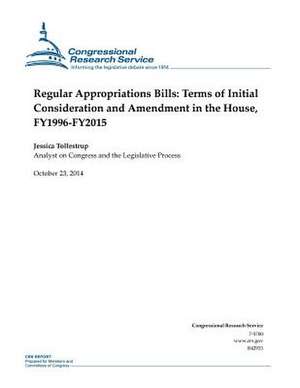Regular Appropriations Bills
Autor Congressional Research Serviceen Limba Engleză Paperback
Preț: 122.43 lei
Nou
Puncte Express: 184
Preț estimativ în valută:
23.43€ • 25.53$ • 19.74£
23.43€ • 25.53$ • 19.74£
Carte disponibilă
Livrare economică 02-16 aprilie
Preluare comenzi: 021 569.72.76
Specificații
ISBN-13: 9781503005655
ISBN-10: 1503005658
Pagini: 28
Dimensiuni: 216 x 279 x 2 mm
Greutate: 0.09 kg
Editura: CREATESPACE
ISBN-10: 1503005658
Pagini: 28
Dimensiuni: 216 x 279 x 2 mm
Greutate: 0.09 kg
Editura: CREATESPACE
